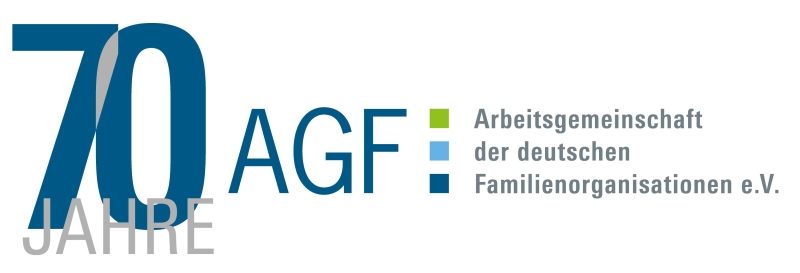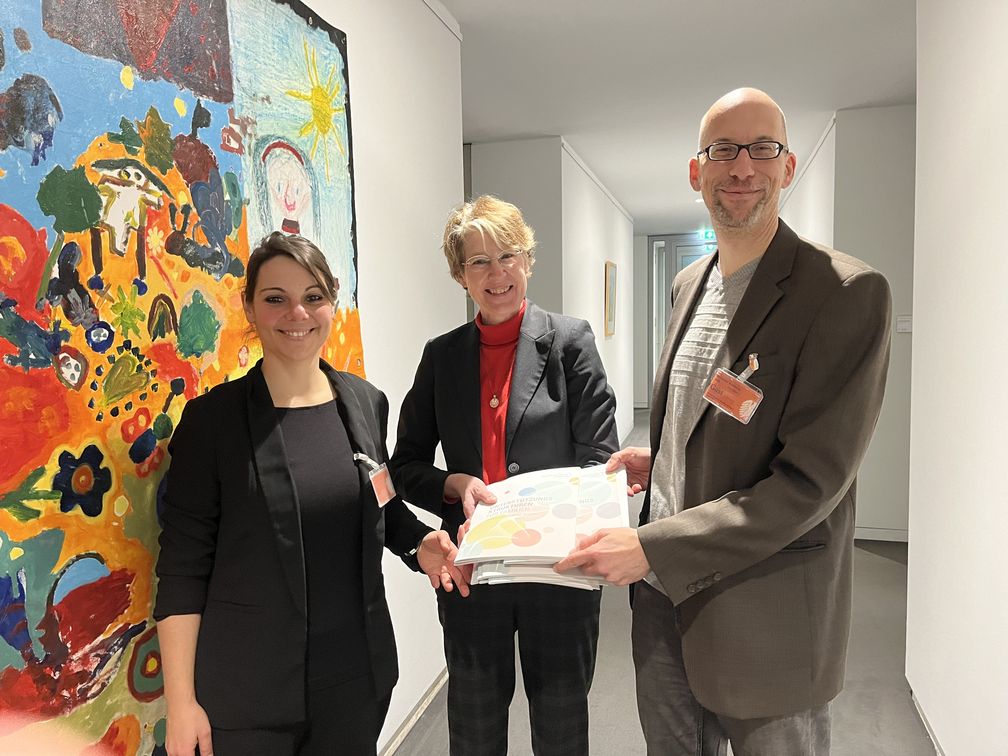On 15 January, Elena Gußmann, the project coordinator of the National Family Forum, and Sven Iversen, Managing Director of the Association of German Family Organisations, presented the final publication of the thematic period completed at the end of 2023 to Ulrike Bahr, Chairwoman of the Family Committee in the Bundestag.
The National Family Forum is a network of 120 organisations that are committed to continuous cooperation and a comprehensive dialogue supporting family concerns. Their common objective is to actively assume responsibility for a family-friendly society. It is organized by AGF. The past two years the members intensely discussed how family support structures on the local level can help families, how they can be organized and what help the organization need themselves to be able to support families best.
The publication “Support structures for families – objectives, access, services”, which has now been handed over, summarises the process and its results, which consisted of specialist events and working group meetings.
At the handover, the attendees supported the importance of the political will to implement preventative measures as it is emphasised in the report. This is of particular importance as the effects of prevention are often difficult to quantify and only become apparent years later. The report states: “There is no glory in prevention”. At the same time, the report emphasises the imperative need to look at society as a whole, free from the (monetary) interests of individual departments.
In a second part of the discussion, the new thematic period of the National Family Forum in 2024 and 2025 was discussed: Family and climate. Here, the participants welcomed the choice of topics by the members of the National Family Forum and emphasised the great importance for families. This will be an existential concern for the next generations in particular, but climate change is also causing problems for older people. It was also addressed that, for example, financially disadvantaged families are relatively more affected by both the effects of climate change and the political measures to mitigate it than wealthy families, even though they contribute relatively little to its causes. It was also emphasised that when addressing the topic, climate impact adaptation and climate protection must be addressed at both the individual and the social/political level and that the role of the organisations and stakeholders themselves should also be addressed.
Following the discussion, the committee chairwoman will hand over the Federal Family Forum’s publication to the individual members of the Family Committee.

